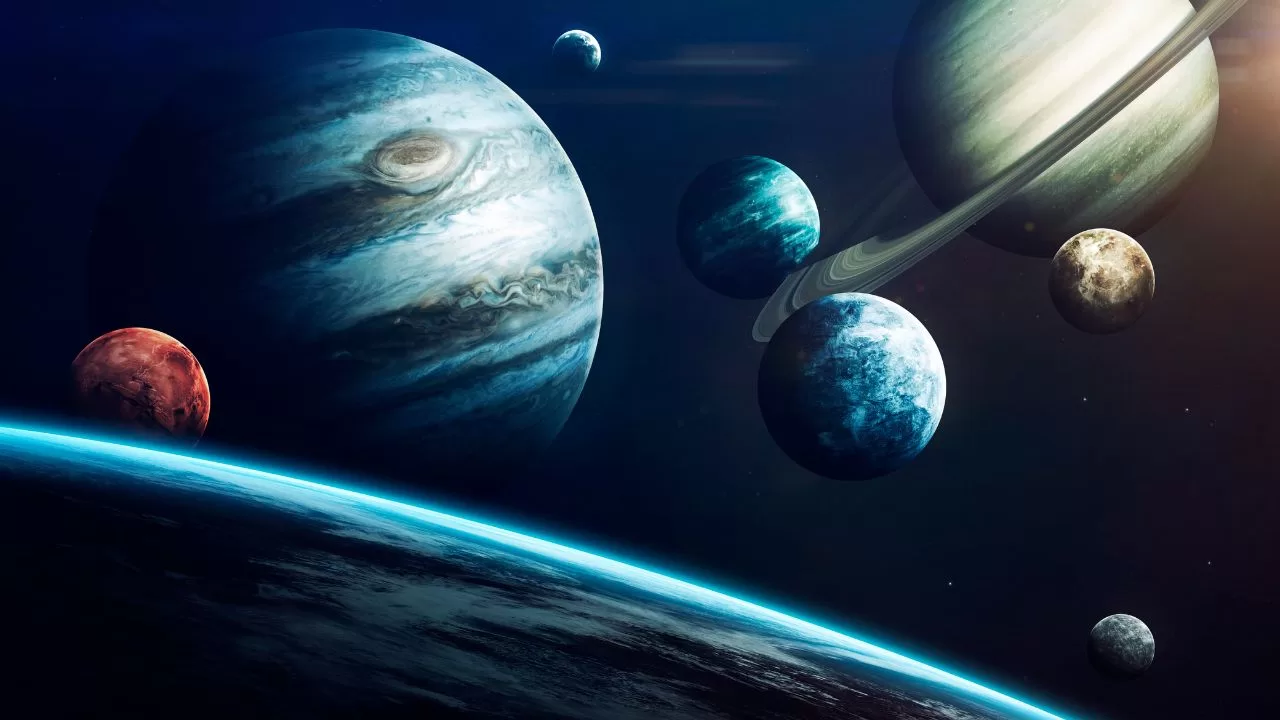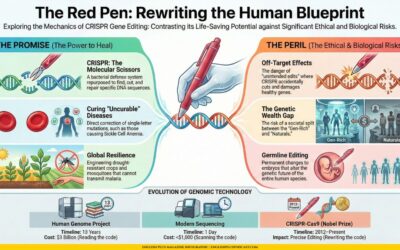In a quiet room lit only by the soft glow of a desk lamp, Clara sat hunched over her astronomy book, completely absorbed by the wonders of the solar system. Her eyes danced over images of the ringed beauty of Saturn and the stormy swirls of Jupiter, and she felt an odd comfort in the vast, organized chaos that spun around in space. It was in these quiet moments, pondering the universe, that Clara stumbled upon profound yet simple wisdom. If these celestial giants could maintain their composure in the dark, cold expanse of space, surely she could find ways to manage her own earthly troubles.
Take Jupiter, for example, the largest planet in our solar system. Known for its massive storms, including the Great Red Spot, a storm larger than Earth that has been raging for centuries, Jupiter is anything but tranquil. Yet, it remains steadfast in its path, not allowing the turmoil on its surface to affect its orbit or its role in our solar system. Clara thought of the last week at work, which felt like one big, never-ending storm. “Going with the Flow: What Jupiter’s Storms Teach Us about Managing Stress,” she mused. Just as Jupiter does not resist its tempestuous atmosphere but rather flows with it, Clara realized that she could take a similar approach with stress. Rather than fighting against the chaos of life, she could learn to navigate it, to ride the waves and remain steady amidst the storm.
On another evening, Clara’s eyes were drawn to Mars, the Red Planet known for its dramatic changes, from flowing rivers in its past to a cold desert now. Mars is a planet that has adapted to immense change over billions of years. “Embracing Change: Lessons from Mars on Adaptability,” Clara whispered to herself. She remembered how she felt uprooted every time life threw a curveball her way. Could she, like Mars, learn to accept and adapt to change rather than fear it? Mars seemed to tell her that change, whether slow or sudden, is a natural part of existence. Adaptability, then, is not a surrender but a survival strategy, a way of continuing to thrive in new circumstances.
Saturn, with its magnificent rings, offered another profound lesson. These rings are composed of countless particles, ranging from tiny grains to massive chunks, all held in a delicate balance. To Clara, Saturn’s rings became a symbol of balance and setting boundaries. Each particle in the ring has its place and orbit, contributing to the whole without crashing into its neighbor. In the same way, Clara realized the importance of setting her own boundaries, creating space in her life to maintain her health, her relationships, and her peace of mind. “Establishing Boundaries: Saturn’s Rings and Personal Space,” she noted, smiling at the thought.
As Clara moved her gaze towards Neptune, she was reminded of self-compassion. Neptune, distant and cold, is often overlooked in favor of its flashier siblings. Yet, it holds its own quiet beauty. “Self-Compassion: Embracing Our Inner Neptune” became Clara’s way of reminding herself to show kindness towards her own perceived inadequacies and not to overlook her own well-being amidst the rush to care for others.
As nights passed, Clara continued to draw parallels between the planets and her own life. She looked to Mercury for lessons in communication — swift and close to the Sun, a reminder to keep her connections close and conversations warm. From Venus, often called Earth’s ‘sister planet’, she learned about self-love and appreciation for her own unique beauty. The Earth itself, our nurturing home, taught her about self-care in the most literal sense: eating well, resting, and cherishing her physical body just as the Earth cherishes all the life it holds.
Clara realized that the solar system, in its grandeur and mystery, mirrors the complexities and challenges of our own lives. Each planet, with its unique composition and path, tells a story that we, too, are living. They are celestial companions that, if we let them, can guide us towards a deeper understanding of ourselves and our place within the vast, beautiful universe.
In the quiet of her room, with the cosmos sprawled open before her in her book, Clara felt a deep sense of connection and calm. In learning from the planets, she had discovered a universe of self-care strategies, and she felt equipped, perhaps for the first time, to navigate the orbit of her own life with grace, strength, and wisdom.
Keywords:
- celestial: Related to the sky or outer space as observed in astronomy.
- metaphorically: In a way that uses a figure of speech in which a word or phrase is applied to an object or action to which it is not literally applicable.
- tempestuous: Characterized by strong and turbulent or conflicting emotion.
- steadfast: Firmly fixed in place; not subject to change.
- adaptability: The ability to change or be changed in order to deal successfully with new situations.
- uprooted: To be removed or moved from one’s home or a familiar location.
- curveball: An unexpected event or surprise that is challenging to deal with.
- survival strategy: A plan that is intended to enable an individual or group to survive under difficult or dangerous conditions.
- self-compassion: Extending compassion to one’s self in instances of perceived inadequacy, failure, or general suffering.
- inadequacies: The state of being insufficient for a specific purpose.
Key Takeaways:
- The planets in our solar system can serve as metaphorical guides for various aspects of self-care and personal well-being.
- Jupiter’s storms teach the lesson of managing stress by going with the flow and remaining steadfast during challenging times.
- Mars offers a model for adaptability and embracing change, demonstrating the natural evolution of life.
- Saturn’s rings symbolize the importance of setting boundaries and maintaining personal space.
- Neptune, as a quieter and often overlooked planet, encourages self-compassion and the appreciation of one’s own unique beauty.
- Mercury’s swift orbit near the Sun illustrates the importance of clear communication and keeping connections close.
- The Earth, as our nurturing home, teaches the fundamental aspects of physical self-care, including nutrition, rest, and general health.
- Viewing the solar system through the lens of self-care can foster a sense of connection to the cosmos and offer practical wisdom for navigating life.
Check out the Solar System Article Series
Cosmic Chronicles: The Living Story of Our Solar System (Featured Article)
The Great Solar Show: Best Spots on Earth to Experience Solar Phenomena
The Real Martians: A Deep Dive into the Search for Life on Mars
Navigating Night Skies: A Beginner’s Guide to Backyard Astronomy
Cosmic Art: How the Solar System Has Inspired Artists Throughout History










0 Comments